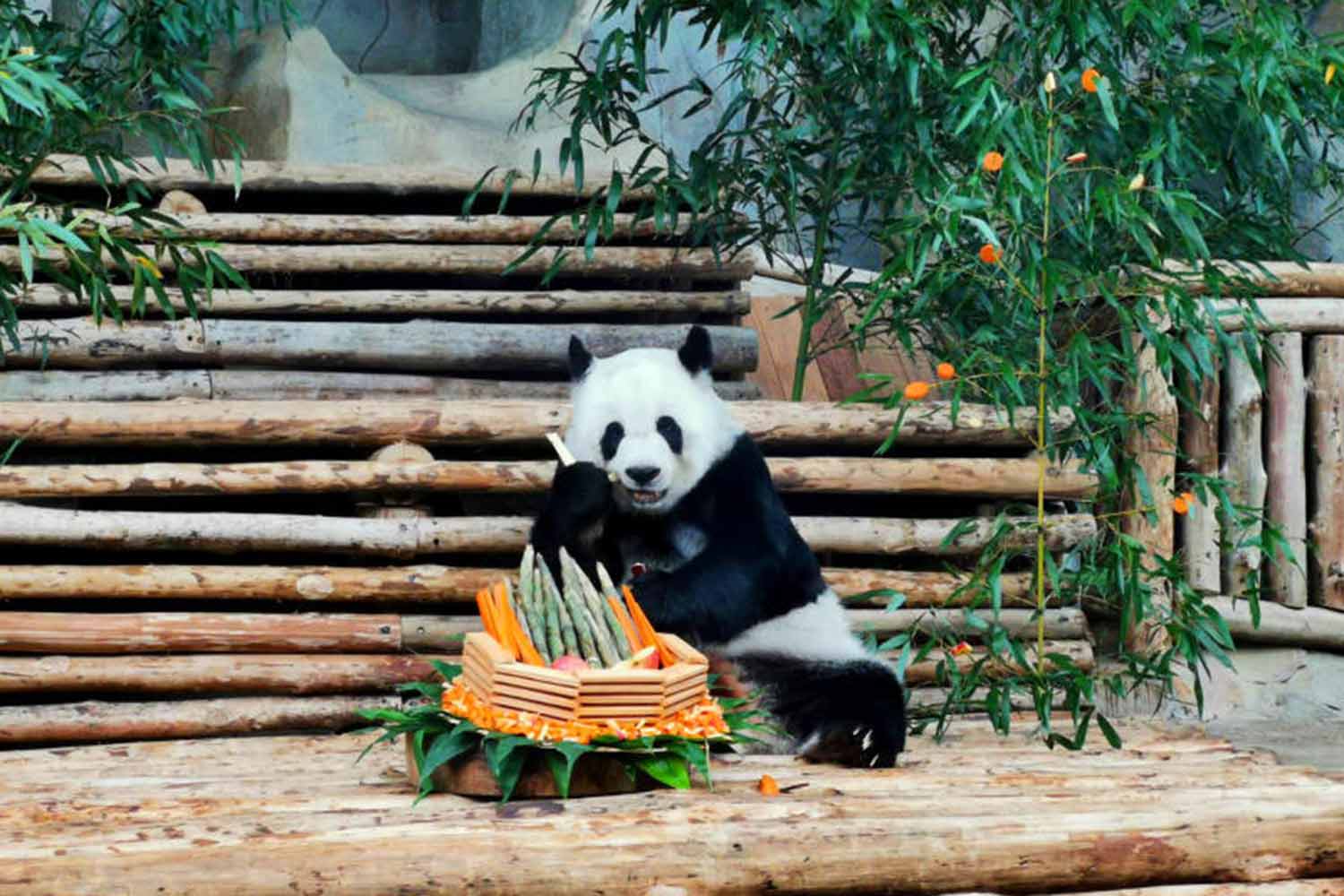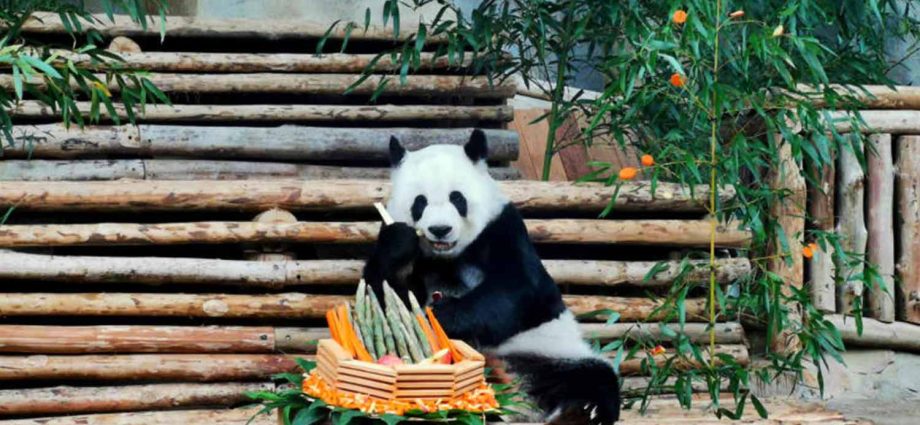Chinese experts confirm Lin Hui was well cared for, says Chiang Mai Zoo director

Thai and Chinese experts have concluded that the giant panda Lin Hui died of old age last month at the Chiang Mai Zoo, where she had been well cared for over the past 20 years, according to the zoo director.
Wuthichai Muangman said the experts reached their conclusion after an autopsy in which about 50 tissue samples collected from the body of the giant panda were examined.
They concluded that because Lin Hui was old her blood vessels had deteriorated and created clots in her blood vessels in several organs, Mr Wuthichai said on Tuesday.
On April 18, the day before the animal died, the zoo’s panda research team reported that she had developed a nosebleed, which the autopsy found was from a nasal tumour.
Veterinarians at the zoo said that while Lin Hui had entered old age she was in good health and was eating normally. Other than the nosebleed, she showed no other signs of illness before she died.
Giant pandas generally live for 15-20 years in the wild but can survive for up to 30 years in a zoo. The death at age 21 of the Chiang Mai Zoo’s star attraction led to some questions about her care.
However, Mr Wuthichai said experts from the China Wildlife Conservation Association found that Lin Hui had been cared for properly at the zoo over the past 20 years. During that time, Thai and Chinese experts conducted joint research relating to giant pandas.
Lin Hui was born at a conservation centre in China on Sept 28, 2001. She was sent to the Chiang Mai Zoo in October 2003, as a goodwill ambassador. She became the zoo’s star attraction, along with the male giant panda Xuang Xuang, who died in 2019.
Following artificial insemination, Lin Hui gave birth to Lin Ping in 2009, sparking panda mania in Thailand.
Animal lovers in the country were glued to a live 24-hour Panda Channel broadcast of Lin Ping between 2009 and 2012.

